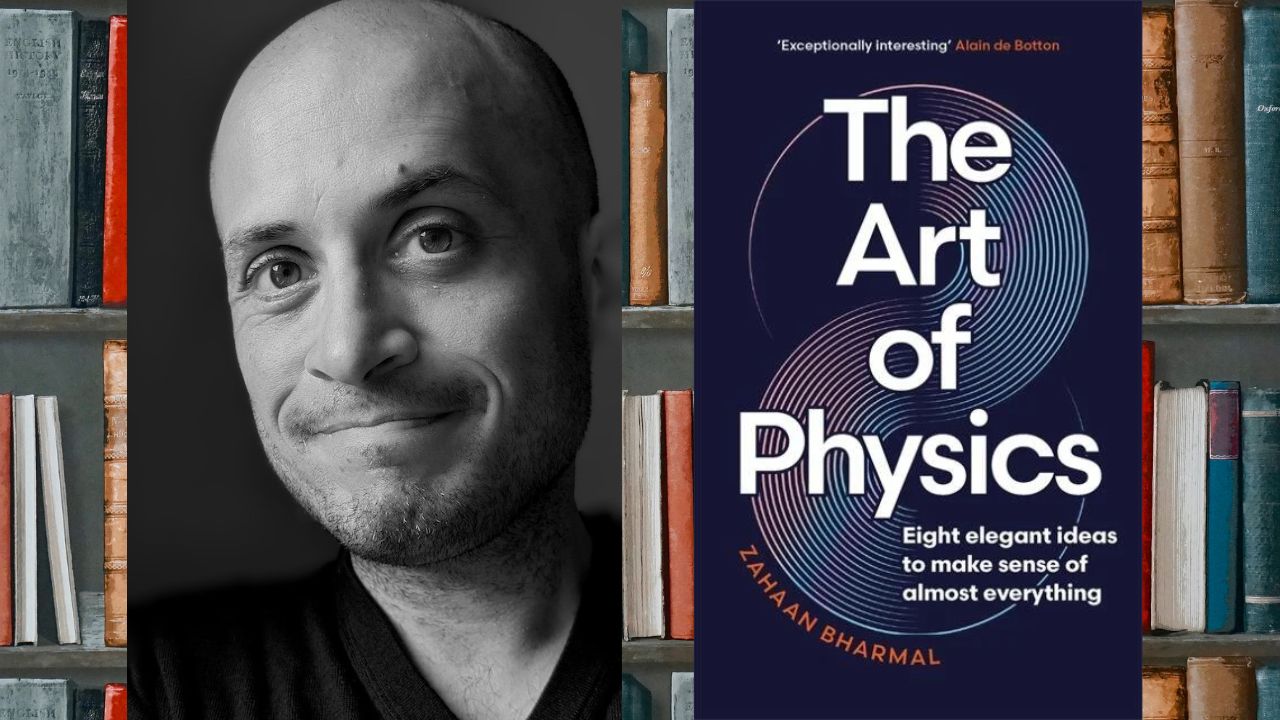The Physics of break-ups and getting fired?
I spoke to debut author Zahaan Bharmal about his new book ‘The Art of Physics: Eight Elegant Ideas to Make Sense of Almost Anything’. The need for pure science books that are ‘easy to read’ and also relatable is real! Another book I’d read long ago came to mind, ‘The Physics of Brand:Understand the Forces Behind Brands That Matter’ by Aaron Keller, Renee Marino and Dan Wallace, which applied the subject to marketing.
“I’ve written this book in my personal capacity,” Bharmal clarifies upfront. “I wrote my book as a love letter to physics – a way of introducing a subject that some might have found intimidating or boring at school, in a way that’s accessible and fun. I hope that it will reveal the beautiful, hidden, and surprising lessons it can teach us about our very human problems!” That’s a great reason to write a book. As it turns out, Bharmal, a professional employed at Google, has Indian roots.
“I’m based in the UK but his family is from India. My mother was born in Mumbai and comes from a family of writers. My grandfather was veteran journalist Burjor Karanjia,” he adds.
Here are five #Bookstrapping insights from our conversation.
1. I asked Bharmal about the TED talk he gave in 2010. The talk inspired a programme he founded in 2011, called YouTube Space Lab, a global competition in partnership with NASA and other space agencies. Students around the world were challenged to design an experiment that would actually be carried out on board the International Space Station! “I felt that exploring space was fundamental to students of physics and YouTube Space Labs was designed to make space accessible for everyone. I wanted to inspire more young minds to take an interest in space and science,” Bharmal clarifies. Very cool!
2. “Is physics receiving enough attention from the younger generation?,” I asked. “I’m not an expert but I believe that the number of people studying the subject, at least in the UK, has seen positive momentum. In the 1990s, when I was a student, the UK physics departments faced declining student numbers, with some even contemplating shutting down courses. The 2000s saw a resurgence. However, there is still more we can do. For example, with regards to the gender divide in physics,” he says. The ray of hope is that in 2024, his alma mater Oxford received one of the highest ever number of applications for physics.
3. Bharmal has won an award from NASA for his excellence in science communication. Which made me wonder, why aren’t there more ‘fun’ narrative books about science? “I’m passionate about science communication. My own journey began over three decades ago. As a lonely and confused teenager, the world felt chaotic and miserable. On my 15th birthday, my parents bought me ‘The Hitchhiker’s Guide to the Galaxy’. I became obsessed with this idea of a single ‘answer to the ultimate question of life, the universe, and everything’. I knew it wasn’t going to be the number 42, but the book ignited a desire to find the real version of that ultimate answer. Physics felt like the path to get there. That’s what led me to Oxford to study physics!”
4. So was it a linear ride with physics? “Not at all! After graduating, life wasn’t always straightforward. I was fired, made irrational decisions, wrestled with jealousy and unstable relationships, even went through a midlife crisis. But through it all, I was still able to find solace and inspiration in ideas and principles from physics – discovering how chaos theory could help me prepare for crises, how quantum physics shed light on my seemingly irrational decisions, how thermodynamics offered insights into managing my energy and how cosmology provided a fresh perspective on inequality!.” Wow!
5. Can physics explain human problems? “Yes. Physics can make sense of very human problems. In the book, I’ve interwoven stories of real physicists who have used their knowledge to tackle social and economic issues. While I can’t promise that physics holds all the answers to life, the universe and everything, it teaches us to embrace the questions.”
Split into eight chapters, the book is entertaining, which is its biggest win. I asked Bharmal what he was reading too! No marks for guessing it was a book based on science. “I’m actually reading a relatively old non-fiction book called “Aliens”, edited by Jim Al-Khalili,” he said. Here’s hoping that books on science make it to every bookshelf and every reading list!
